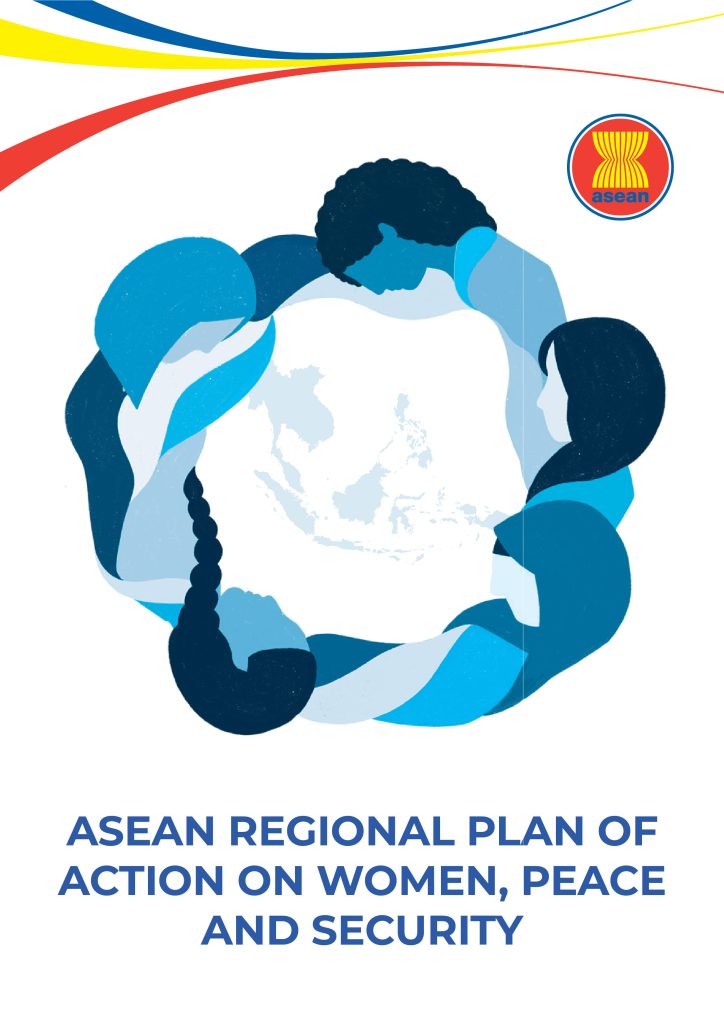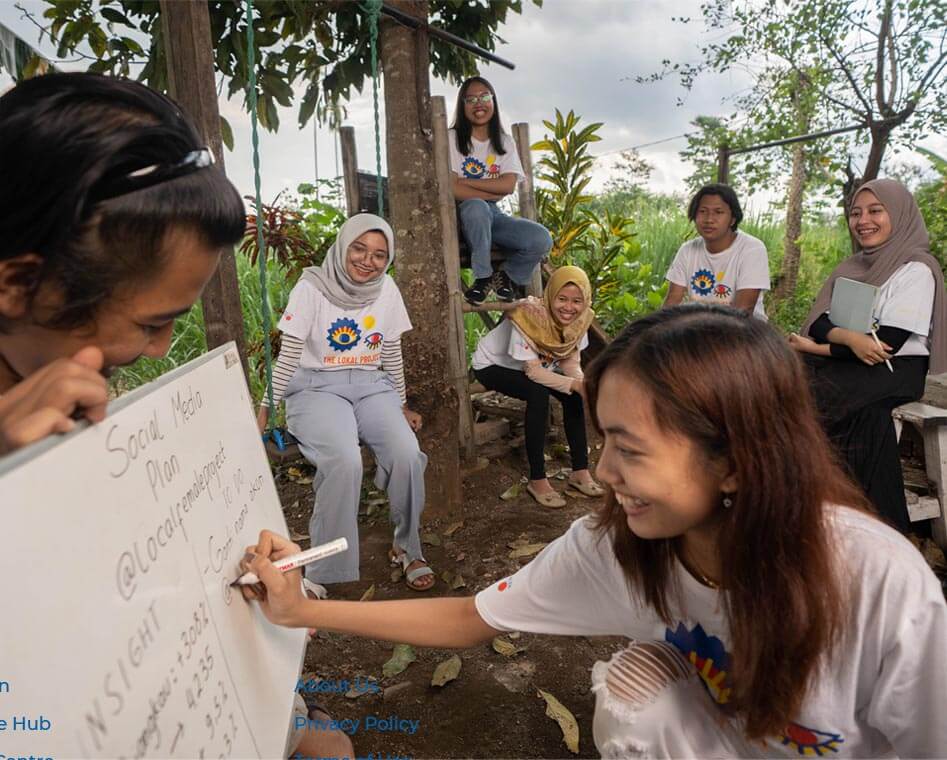
ASEAN Regional Plan of Action on Women, Peace and Security
Publication Date: December 5, 2022
Total Pages: 50
Organization: ASEAN
Languages: English, Indonesian, Khmer, Vietnamese, Thai
Country/Region: Southeast Asia
Topic Area: Gender equality and women’s empowerment, Peace and security
Year: 2022
Resource Type: Action Plan
Abstract
Implementing the Women, Peace and Security (WPS) agenda has long been recognised as essential to achieving sustainable peace and prosperity in the ASEAN region. ASEAN member states remain committed to gender equality and the full protection of women’s rights. They also remain steadfast in their aim to maintain regional peace, address shared security concerns and advance development and prosperity for all citizens. Member states consider the development of this Regional Plan of Action on Women, Peace and Security (RPA WPS) as a critical step to making progress on these commitments. The RPA WPS aims to mobilise the whole of ASEAN to advance implementation of the WPS agenda to promote sustainable peace and security for all citizens.
The RPA WPS builds upon decades of political engagement in the ASEAN region on issues pertinent to the WPS agenda, as expressed by the Declaration on the Elimination of Violence Against Women in the ASEAN Region (2004), the Declaration on the Elimination of Violence against Women and Elimination of Violence Against Children in ASEAN (2013) and the ASEAN Regional Plan of Action on the Elimination of Violence against Women (2015). Signalling their strong commitment, ASEAN leaders adopted the Joint Statement on Promoting Women, Peace and Security in ASEAN during the 31st ASEAN Summit in November 2017. The ASEAN Ministerial Dialogue on Strengthening Women’s Role for Sustainable Peace and Security, held in September 2020, further reiterated ASEAN’s determination to ensure the integration of WPS into regional policies and frameworks across the three ASEAN community pillars: Political-Security Community, Economic Community and Socio-Cultural Community. The development of a Regional Plan of Action on WPS was one of the key recommendations of the ASEAN Regional Study on Women, Peace and Security, which was launched in 2021 with the support of the U.S. Agency for International Development (USAID) and UN Women.
The RPA WPS is the product of a consultative process and reflects the efforts and inputs of a wide array of institutions and stakeholders engaged in women’s rights, gender equality and peace and security work across the region.
The RPA WPS is divided into six key parts. The first section offers an overview of relevant contextual factors. The RPA WPS recognises the overlapping and intersecting threats and challenges related to peace and security and is designed to respond to both traditional and emerging security challenges, such as climate change, disasters,3 pandemics and violent extremism. Section 2 discusses foundational global and ASEAN regional frameworks. The RPA WPS builds upon existing global frameworks and regional initiatives relevant to WPS and works to amplify the impact of this ongoing work while also addressing gaps. Section 3 identifies some of these gaps by offering a snapshot of progress, challenges and opportunities related to WPS in the ASEAN region. The rationale and objectives for the RPA WPS are discussed in Section 4, and an overview of the process for developing the regional plan is detailed in Section 5. The remaining section of the RPA WPS outlines a logical results-based framework for implementation detailing: i. the priority actions that should be taken; ii. the outputs 4 expected from these actions; and iii. the outcomes which the RPA WPS aims to achieve.
A fundamental objective of the RPA WPS is to deliver clear guidance for WPS implementation across the region. At the same time, the regional plan is designed to allow sufficient space to ensure WPS implementation speaks to national and sub-national peace and security priorities and evidence-based realities. ASEAN has a long history of innovative local approaches on peace and security, often led by women. One objective of this RPA WPS is to highlight these best practices, allowing them to inspire broader application where relevant, and to support the forging of new and mutually beneficial relationships between local innovative initiatives and national and regional approaches on WPS. There are many examples of successful WPS approaches and partnerships across ASEAN; the RPA WPS works to support these effective practices and inspire more to deliver real progress to women, men, youth, children and those from marginalised groups across ASEAN.

